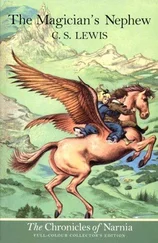Clive Lewis - That Hideous Strength
Здесь есть возможность читать онлайн «Clive Lewis - That Hideous Strength» — ознакомительный отрывок электронной книги совершенно бесплатно, а после прочтения отрывка купить полную версию. В некоторых случаях можно слушать аудио, скачать через торрент в формате fb2 и присутствует краткое содержание. Жанр: Религиоведение, Фэнтези, на английском языке. Описание произведения, (предисловие) а так же отзывы посетителей доступны на портале библиотеки ЛибКат.
- Название:That Hideous Strength
- Автор:
- Жанр:
- Год:неизвестен
- ISBN:нет данных
- Рейтинг книги:5 / 5. Голосов: 1
-
Избранное:Добавить в избранное
- Отзывы:
-
Ваша оценка:
- 100
- 1
- 2
- 3
- 4
- 5
That Hideous Strength: краткое содержание, описание и аннотация
Предлагаем к чтению аннотацию, описание, краткое содержание или предисловие (зависит от того, что написал сам автор книги «That Hideous Strength»). Если вы не нашли необходимую информацию о книге — напишите в комментариях, мы постараемся отыскать её.
That Hideous Strength — читать онлайн ознакомительный отрывок
Ниже представлен текст книги, разбитый по страницам. Система сохранения места последней прочитанной страницы, позволяет с удобством читать онлайн бесплатно книгу «That Hideous Strength», без необходимости каждый раз заново искать на чём Вы остановились. Поставьте закладку, и сможете в любой момент перейти на страницу, на которой закончили чтение.
Интервал:
Закладка:
During this item the thoughts of more than one Fellow had turned to lunch and attention had wandered. But when Curry rose at five minutes to one to introduce Item 3, there was a sharp revival of interest. It was called “Rectification of an Anomaly of the Stipends in Junior Fellows.” I would not like to say what the most junior Fellows of Bracton were getting at this time, but I believe it hardly covered the expenses of their residence in college, which was compulsory. Studdock who had only recently emerged from this class felt great sympathy with them. He understood the look in their faces. The Rectification, if it went through, would mean to them clothes and holidays and meat for lunch and a chance to buy a half, instead of a fifth, of the books they needed. All their eyes were fixed on the Bursar when he rose to reply to Curry’s proposal. He hoped that no one would imagine he approved the anomaly which had, in 1910, excluded the lowest class of the Fellows from the new clauses in the eighteenth paragraph of Statute 17. He felt sure that everyone present would wish it to be rectified: but it was his duty, as Bursar, to point out that this was the second proposal involving very heavy expenditure which had come before them that morning. He could only say of this, as he had said of the previous proposal, that it could not be isolated from the whole problem of the present financial position of the College which he hoped to lay before them during the course of the afternoon. A great deal more was said, but the Bursar remained unanswered, the matter was postponed, and when, at quarter to two, the Fellows came surging out of the Soler for lunch, hungry and headachy and ravenous for tobacco, every junior had it fixed in his mind that a new wall for the Wood and a rise in his own stipend were strictly exclusive alternatives. “That darn Wood has been in our way all morning,” said one. “We’re not out of it yet,” answered another.
In this frame of mind the College returned to the Soler after lunch to consider its finances. Busby, the Bursar, was naturally the principal speaker. It is very hot in the Soler on a sunny afternoon; and the smooth flow of the Bursar’s exposition, and even the flashing of his level, white teeth above his beard (he had remarkably fine teeth) had a sort of hypnotic power. Fellows of colleges do not always find money matters easy to understand: if they did they would probably not have been the sort of men who become Fellows of colleges. They gathered that the situation was bad; very bad indeed. Some of the youngest and most inexperienced members ceased to wonder whether they would get a new wall or a rise of stipend and began to wonder instead whether the College could continue to function at all. The times, as the Bursar so truly said, were extraordinarily difficult. Older members had heard of such times very often before from dozens of previous Bursars and were less disturbed. I am not suggesting for a moment that the Bursar of Bracton was in any way misrepresenting the position. It is very seldom that the affairs of a large corporation, indefinitely committed to the advancement of learning, can be described as being, in a quite unambiguous sense, satisfactory. His delivery was excellent. Each sentence was a model of lucidity: and if his hearers found the gist of his whole statement less clear than the parts, that may have been their own fault. Some minor retrenchments and re-investments which he suggested were unanimously approved and the College adjourned for tea in a chastened mood. Studdock rang up Jane and told her he would not be home for dinner.
It was not till six o’clock that all the converging lines of thought and feeling aroused by the earlier business came together upon the question of selling Bragdon Wood. It was not called “the sale of Bragdon Wood.” The Bursar called it the “sale of the area coloured pink on the plan which, with the Warden’s permission, I will now pass round the table.” He pointed out quite frankly that this involved the loss of part of the Wood. In fact, the proposed N.I.C.E. site still left to the College a strip about sixteen feet broad along the far half of the south side, but there was no deception for the Fellows had the plan to look at with their own eyes. It was a small-scale plan and not perhaps perfectly accurate-only meant to give one a general idea. In answer to questions he admitted that unfortunately-or perhaps fortunately-the Well itself was in the area which the N.I.C.E. wanted. The rights of the College to access would, of course, be guaranteed: and the Well and its pavement would be preserved by the Institute in a manner to satisfy all the archaeologists in the world. He refrained from offering any advice and merely mentioned the quite astonishing figure which the N.I.C.E. was offering. After that, the meeting became lively. The advantages of the sale discovered themselves one by one like ripe fruit dropping into the hand. It solved the problem of the wall: it solved the problem of protecting ancient monuments: it solved the financial problem: it looked like solving the problem of the junior Fellows’ stipends. It appeared further that the N.I.C.E. regarded this as the only possible site in Edgestow: if by any chance Bracton would not sell, the whole scheme miscarried and the Institute would undoubtedly go to Cambridge. It was even drawn out of the Bursar by much questioning that he knew of a Cambridge college very anxious to sell.
The few real “Die-hards” present, to whom Bragdon Wood was almost a basic assumption of life, could hardly bring themselves to realise what was happening. When they found their voices, they struck a discordant note amid the general buzz of cheerful comment. They were manoeuvred into the position of appearing as the party who passionately desired to see Bragdon surrounded with barbed wire. When at last old Jewel, blind and shaky and almost weeping, rose to his feet, his voice was hardly audible. Men turned round to gaze at, and some to admire, the clear-cut, half childish face and the white hair which had become more conspicuous as the long room grew darker. But only those close to him could hear what he said. At this moment Lord Feverstone sprang to his feet, folded his arms, and looking straight at the old man said in a very loud, clear voice:
“If Canon Jewel wishes us not to hear his views, I suggest that his end could be better attained by silence.”
Jewel had been already an old man in the days before the first war when old men were treated with kindness, and he had never succeeded in getting used to the modern world. He stared with puzzled eyes in the direction of Feverstone. For a moment as he stood with his head thrust forward, people thought he was going to reply. Then quite suddenly he spread out his hands with a gesture of helplessness, shrunk back, and began laboriously to resume his chair.
The motion was carried.
V
After leaving the flat that morning Jane also had gone down to Edgestow and bought a hat. She had before now expressed some contempt for the kind of woman who buys hats, as a man buys drinks, for a stimulant and a consolation. It did not occur to her that she was doing so herself on this occasion. She liked her clothes to be rather severe and in colours that were really good on serious aesthetic grounds-clothes which would make it plain to everyone that she was an intelligent adult and not a woman of the chocolate-box variety-and because of this preference she did not know that she was interested in clothes at all. She was therefore a little annoyed when Mrs. Dimble met her coming out of Sparrow’s and said: “Hullo, dear! Been buying a hat? Come home to lunch and let’s see it. Cecil has the car just round the corner.”
Cecil Dimble, a Fellow of Northumberland, had been Jane’s tutor for her last years as a student, and Mrs. Dimble (one tended to call her “Mother Dimble”) had been a kind of universal aunt to all the girls of her year. A liking for the female pupils of one’s husband is not, perhaps, so common as might be wished among dons’ wives: but Mrs. Dimble appeared to like all Dr. Dimble’s pupils of both sexes and the Dimble’s house, away on the far side of the river, was a kind of noisy salon all the term. She had been particularly fond of Jane with that kind of affection which a humorous, easy natured and childless woman sometimes feels for a girl whom she thinks pretty and slightly absurd. For the last year or so Jane had been somewhat losing sight of the Dimbles and felt rather guilty about it. She accepted the invitation to lunch. They drove over the bridge to the north of Bracton and then south along the bank of the Wynd, past the cottages, then left and eastward at the Norman church and down the straight road with the poplars on one side and the wall of Bragdon Wood on the other, and so finally to the Dimbles’ front door.
Читать дальшеИнтервал:
Закладка:
Похожие книги на «That Hideous Strength»
Представляем Вашему вниманию похожие книги на «That Hideous Strength» списком для выбора. Мы отобрали схожую по названию и смыслу литературу в надежде предоставить читателям больше вариантов отыскать новые, интересные, ещё непрочитанные произведения.
Обсуждение, отзывы о книге «That Hideous Strength» и просто собственные мнения читателей. Оставьте ваши комментарии, напишите, что Вы думаете о произведении, его смысле или главных героях. Укажите что конкретно понравилось, а что нет, и почему Вы так считаете.












